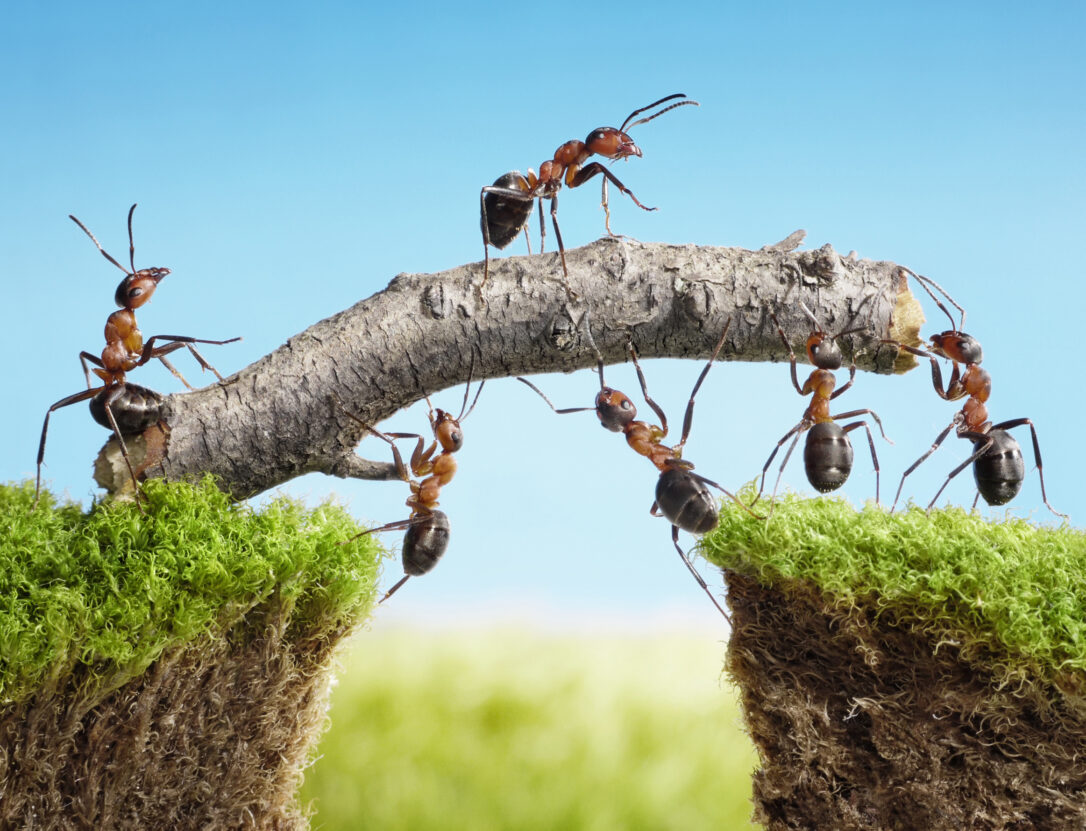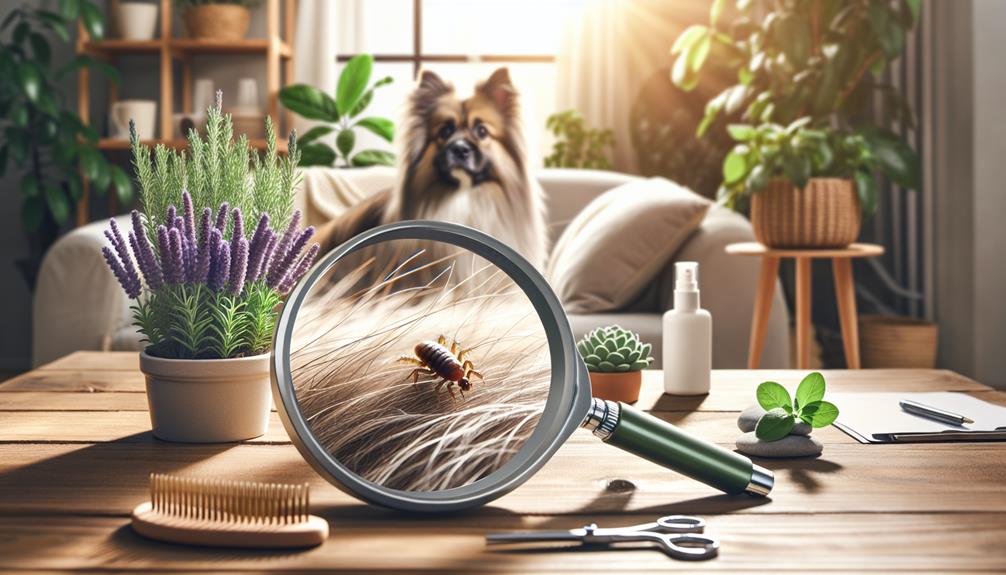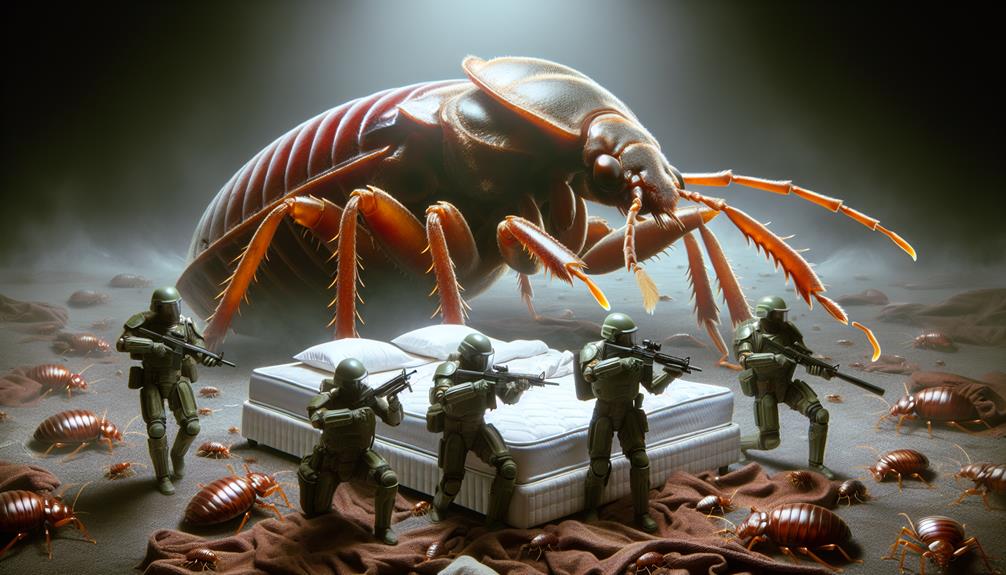Table of Contents
The World of Ants
Ants are among the most fascinating and diverse insects on our planet. With over 12,000 known species, they can be found on every continent except Antarctica. These tiny creatures have been around for millions of years, evolving and adapting to their environment. In this article, we will explore some lesser-known facts about ants that will leave you amazed.
Ants: Social Insects with Complex Colonies
The Role of the Queen Ant
Ant colonies are structured around a single queen ant, whose primary role is to lay eggs and ensure the survival of the colony. Some queen ants can live for up to 30 years and lay millions of eggs in their lifetime, making them one of the most important members of the colony.
Worker Ants: The Backbone of the Colony
Worker ants are the female ants that make up the majority of the colony. They perform a variety of tasks such as foraging for food, caring for the queen and her eggs, and maintaining the nest. Worker ants are truly the unsung heroes of the ant world.
Male Ants and Their Singular Purpose
Male ants, also known as drones, have one primary function: to mate with the queen ant. After mating, they usually die, as they are not needed for any other tasks within the colony.
Communication and Cooperation Among Ants
The Use of Pheromones
Ants communicate with one another using a complex system of chemical signals called pheromones. These chemical messages can relay information about food sources, danger, and even the overall health of the colony.
Tandem Running and Recruitment
Some ant species use a process called tandem running to recruit other ants to help with tasks like foraging or defending the nest. In tandem running, one ant leads another to a specific location by tapping its abdomen on the follower’s antennae.
Unique Ant Species and Their Behaviours
Army Ants on the Move
Army ants are known for their nomadic lifestyle and aggressive foraging behaviour. They form massive raiding parties that can include millions of ants, and
can devour everything in their path, including insects, spiders, and small vertebrates. These ants are always on the move, constructing temporary nests called bivouacs made from the interlinked bodies of worker ants.
Leafcutter Ants: Nature’s Gardeners
Leafcutter ants are found in the tropical rainforests of Central and South America. They have a unique symbiotic relationship with a specific type of fungus. The ants cut small pieces of leaves and bring them back to their nest, where they use the leaf fragments to cultivate the fungus. In turn, the fungus serves as the primary food source for the colony.
The Remarkable Strength of Trap-Jaw Ants
Trap-jaw ants are known for their impressive mandibles, which can snap shut at speeds of up to 145 miles per hour. They use these powerful jaws to capture prey, defend their nest, and even to propel themselves into the air to escape predators.
The Impact of Ants on the Ecosystem
Ants as Predators and Prey
Ants play a vital role in their ecosystem as both predators and prey. They help to control populations of other insects and small invertebrates, while also serving as a food source for larger predators like birds, reptiles, and mammals.
Ants and Their Influence on Soil and Plant Health
Many ant species are essential for maintaining soil health and promoting plant growth. By tunneling and creating complex networks of chambers and tunnels, ants aerate the soil, allowing water and nutrients to penetrate more easily. Some ants even help to disperse seeds and promote plant growth through their foraging activities.
Ants and Humans: A Complex Relationship
Ants as Pests and Allies
While ants can sometimes be seen as pests, invading homes and damaging property, they also play an essential role in our ecosystem. In agriculture, ants can help control populations of pests like aphids and caterpillars, reducing the need for chemical pesticides.
What We Can Learn from Ants
Ants can teach us a lot about teamwork, communication, and resilience. Their ability to work together to achieve common goals and overcome obstacles is truly remarkable. Studying ants can also provide insights into the development of robotics, artificial intelligence, and even human social systems.
As we uncover more fascinating facts about ants, we can better appreciate these tiny yet complex creatures and the essential role they play in our world.
Frequently Asked Questions
1. Q: How many species of ants are there in the world?
A: There are over 12,000 known species of ants, and they can be found on every continent except Antarctica. Ants have adapted to various environments and display a wide range of behaviours and characteristics.
2. Q: How do ants communicate with each other?
A: Ants communicate primarily through the use of pheromones, which are chemical signals that convey information. These chemical messages can relay details about food sources, danger, and even the overall health of the colony.
3. Q: What is the primary role of the queen ant in a colony?
A: The primary role of a queen ant is to lay eggs and ensure the survival of the colony. Queen ants can live for up to 30 years and lay millions of eggs throughout their lifetime.
4. Q: How do ants contribute to soil and plant health?
A: Many ant species help maintain soil health and promote plant growth by tunneling and creating complex networks of chambers and tunnels. These activities aerate the soil, allowing water and nutrients to penetrate more easily. Some ants also help disperse seeds and promote plant growth through their foraging activities.
5. Q: Can studying ants provide insights for other fields like robotics or artificial intelligence?
A: Yes, studying ants can provide valuable insights into the development of robotics, artificial intelligence, and even human social systems. The way ants communicate, work together, and overcome obstacles can inspire new technological advancements and offer a deeper understanding of complex systems.
You may also enjoy reading this article
Was This Article Helpful?
- Please provide feedback and comments to help us improve our content.
- Share your experiences and any additional tips you have for dealing with pests.
Share this Post



